As COVID-19 spreads across the world with 1 363 365 confirmed cases (as of April 7) across the globe, it’s apparent that we all face very uncertain times. And if the thought of the potentially fatal sickness ravaging our planet wasn’t enough, many of us have to deal with the ripple effect from the big wave. Financial instability, mental health issues and fear for the loved ones are some of the biggest problems one might experience during these months. That’s why it’s important to look around for something positive to cling on and not lose hope altogether.
Author David Videcette recently took to Twitter to shed some light on an inspiring story of solidarity. He began a Twitter thread by showing a video where The Church of the Holy Sepulchre in Jerusalem was closed due to Coronavirus. A historic event, as it’s reported that the last time it happened was in 1349, during the Black Plague. But that wasn’t the core of his message. The most important part of the story was who closed the door.
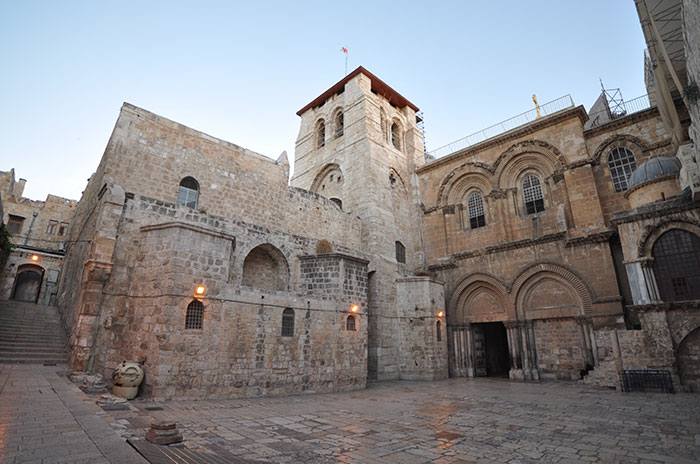
Image credits: Jorge Láscar Follow
This is the moment The Church of the Holy Sepulchre in Jerusalem was closed due to Coronavirus.
Last time this happened was in 1349, during The Black Death, a bubonic plague pandemic.
What’s fascinating about this story is the guy with the keys. pic.twitter.com/9brXHUmeTh
— David Videcette (@DavidVidecette) April 5, 2020
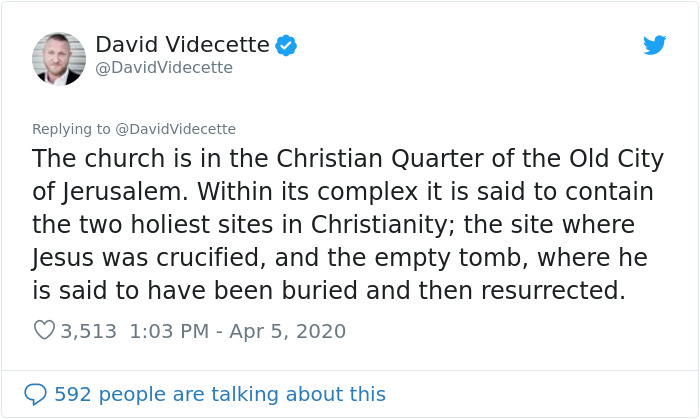
Image credits: DavidVidecette
The Church of the Holy Sepulchre is located in the Christian Quarter of the Old City of Jerusalem. As David mention, the church contains two holiest sites in Christianity: the site where Jesus was crucified,[2] at a place known as Calvary or Golgotha, and Jesus’s empty tomb, where he is said to have been buried and resurrected. An understanding between religious communities dating to 1757, called the Status Quo, applies to the site.
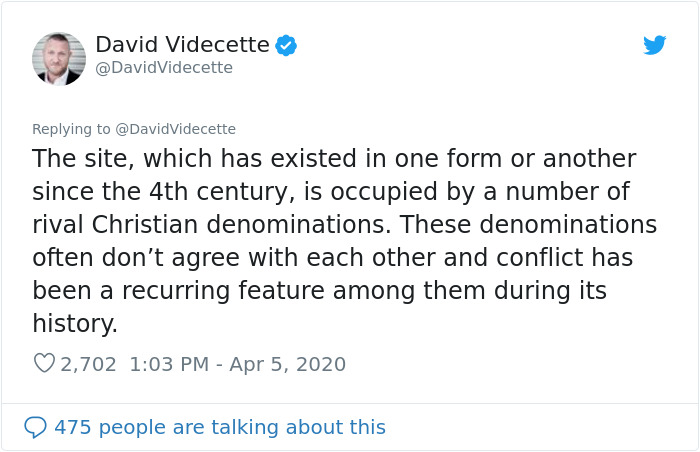
Image credits: DavidVidecette
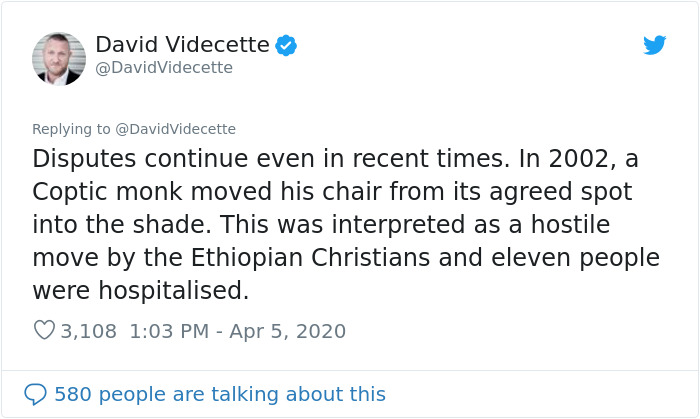
Image credits: DavidVidecette
Nusaybah clan alongside with the Joudeh Al-Goudia family are the key holders to the church. The Sunni Muslim family being the key master of the church is an established tradition dating all the way back to the 7th century:
“One of the great ancestors of the Nussaiba family was Ubada Ibn Al-Samet who settled in Jerusalem in the 7th century in the wake of the conquest of Jerusalem, and who was appointed as a governor by Umar. The keys of the Church of the Holy Sepulchre were placed in the custody of the family and is so until today.”
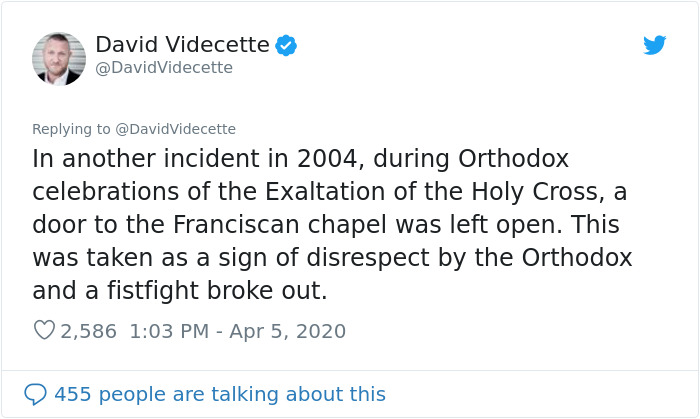
Image credits: DavidVidecette
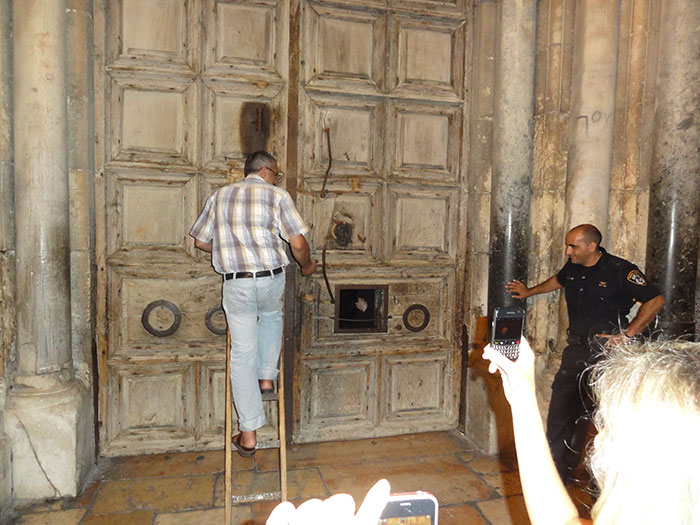
Image credits: Mattes
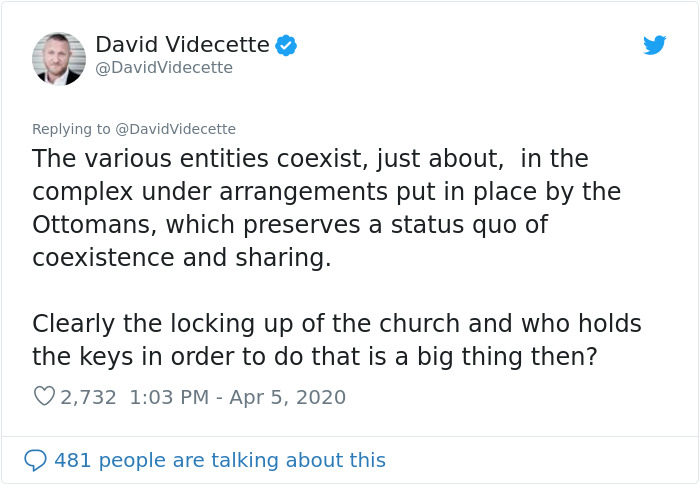
Image credits: DavidVidecette
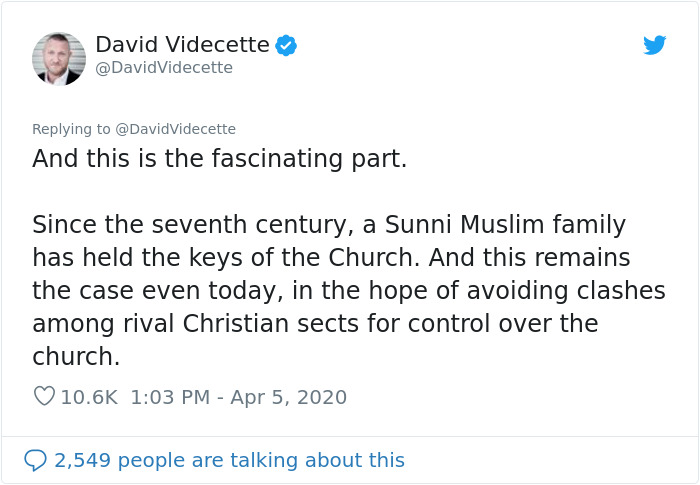
Image credits: DavidVidecette
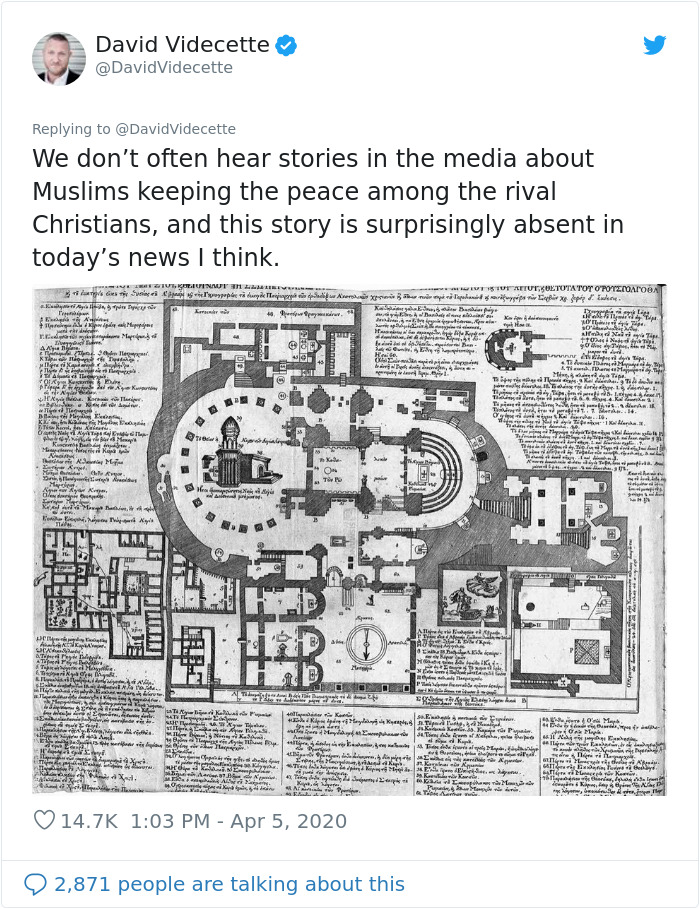
Image credits: DavidVidecette
Here’s how people reacted to Videcette’s tweet thread
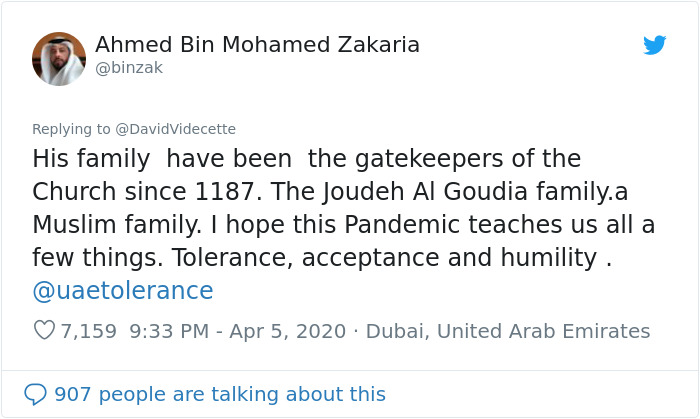
Image credits: binzak

Image credits: UFOi1973

Image credits: jackalili

Image credits: AOMahonyCork

Image credits: bellburgmaggie

Image credits: BeckyLynnOliver
from Bored Panda https://ift.tt/2RlfYq1

No comments:
Post a Comment